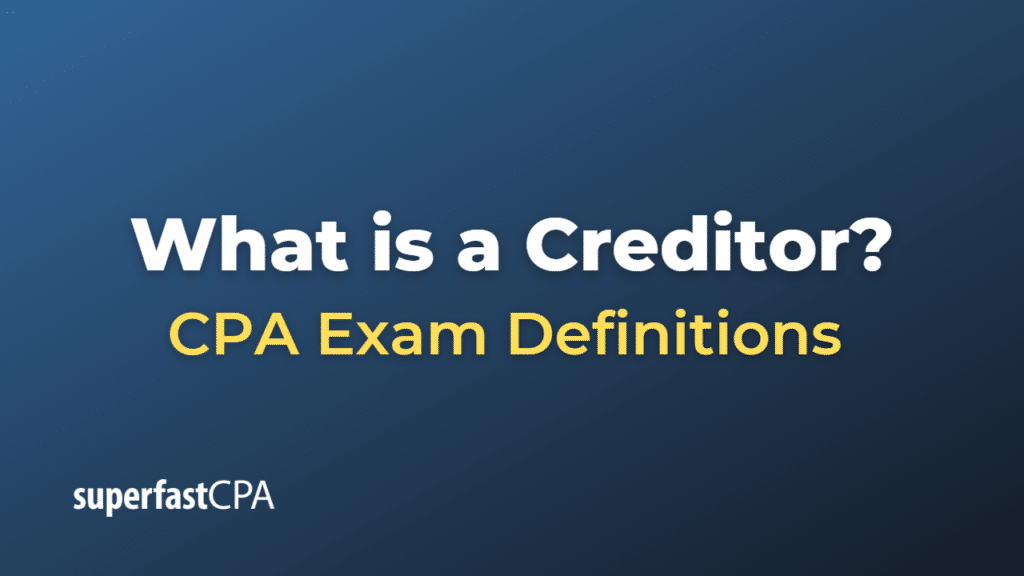Creditor
A creditor is an individual, business, or institution that lends money or extends credit to another party. The borrower, known as the debtor, is legally obligated to repay the amount lent or the credit extended, usually with interest.
Creditors can be classified into two main types: personal and real.
- Personal creditors: These are individuals who personally lend money to others. For example, a friend who lends money to another friend is a personal creditor.
- Real creditors: These are institutions such as banks, credit card companies, or any other financial institutions that lend money to individuals or businesses. These are typically the type of creditors people often interact with in daily life.
It’s also worth noting that there are secured and unsecured creditors:
- Secured creditors: Their debt is backed by a form of collateral from the debtor. This could be a car, house, or other assets. If the debtor fails to repay the loan, the creditor has the right to seize the collateral to cover the debt.
- Unsecured creditors: Their debt is not backed by any collateral. This type of credit includes most credit cards and personal loans. If the debtor defaults on the loan, the creditor has to go through a legal process to try to get their money back.
Creditors have legal rights and can take various actions to recover their funds if a debtor fails to meet the repayment terms of the loan or credit agreement. These actions may include reporting the unpaid debt to credit reporting agencies, taking court action, or hiring a collection agency.
Example of a Creditor
Let’s consider a common scenario involving a bank and a customer:
Suppose John wishes to buy a house but doesn’t have sufficient funds to pay for the property outright. He visits Bank ABC and applies for a home loan. After reviewing John’s credit history, income, and other relevant factors, Bank ABC approves his loan application and lends him the money needed to purchase the house.
In this scenario, Bank ABC is the creditor because it has extended credit (in the form of a home loan) to John. On the other hand, John is the debtor because he has borrowed money from the bank and is obligated to repay the loan in the agreed manner, typically via monthly installments over a certain period of time, along with interest.
If John fails to meet his repayment obligations, the bank, as a secured creditor (because the loan is secured by the house), has the right to take possession of the house through a process called foreclosure and sell it to recover the unpaid debt.
This is a simplified example and real-world situations can be more complex, but it provides a basic understanding of the roles and relationships of creditors and debtors.













